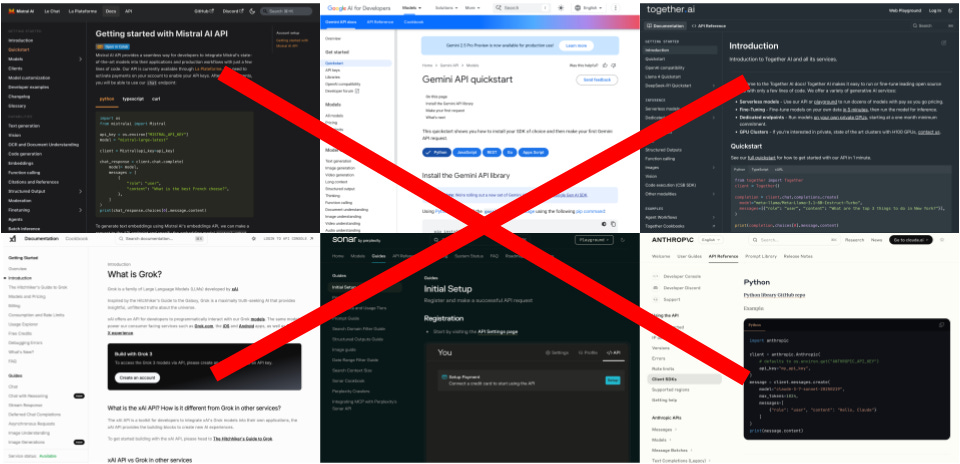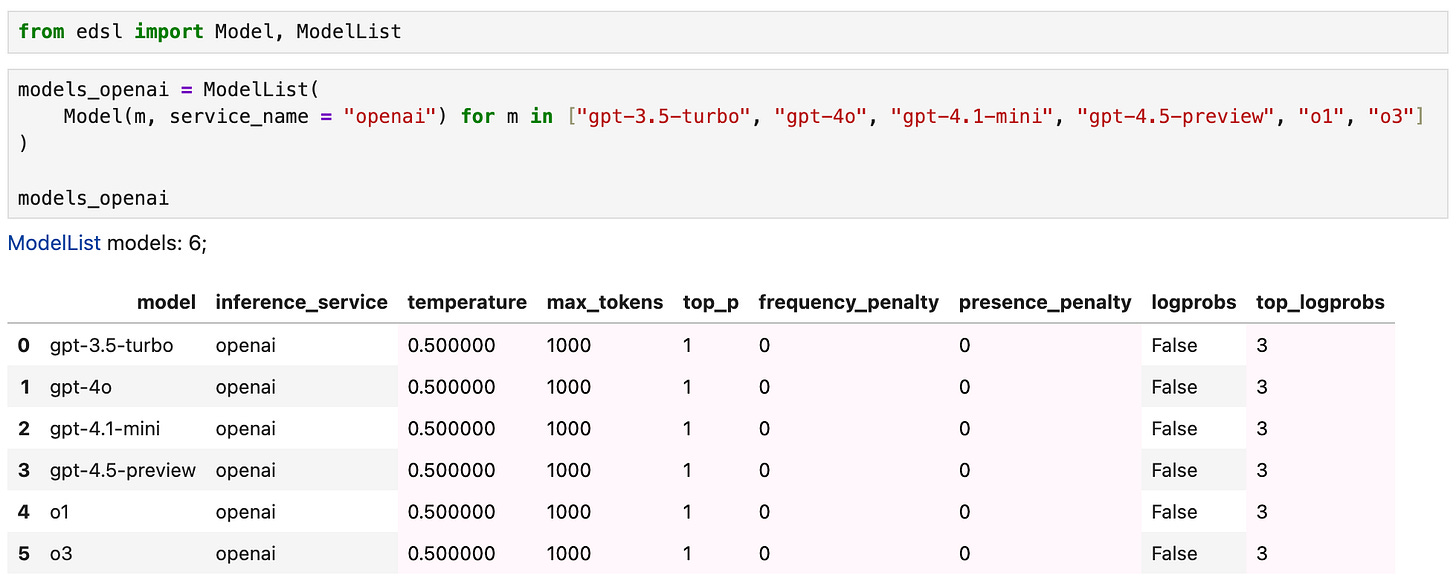I want to see how OpenAI's o3 compares to...
EDSL is an open-source tool that lets you readily compare performance for many language models at once.
Several key features of EDSL make it a convenient tool for comparing the performance of language models:
Unified access: Connect to multiple language model providers with a single API key and universal methods—no software engineering required
Structured data collection: Automatically formatted datasets of responses eliminate manual data cleaning work
Analysis tools: Built-in methods for analyzing, reproducing and exporting results
How it works
EDSL is an open-source Python package designed to simplify conducting experiments with AI agents and language models. A typical workflow consists of the following steps:
Create questions (free text, multiple choice, numerical, matrix, etc.)
Combine questions in surveys with custom logic (skip patterns, stop rules, etc.)
(Optional) Create personas for AI agents to answer the survey
Select language models to generate the responses
Analyze results in specified datasets
Simplified access to models
EDSL is designed for researchers who want to work with language models without spending lots of time on software development. It eliminates the need for one-off coding required to access individual service providers by letting you connect to them all in the same straightforward way.
In EDSL, you can access models individually or collectively by simply selecting them and specifying desired parameters. For example, here we create a list of OpenAI models in order to use them all simultaneously with a survey when we run it. We can inspect the default parameters for the models that will be used:
You can also create multiple instances of the same model with different parameters. Here we create a new model list where we adjust the temperature of a single model:
Results as formatted datasets
Running a survey with multiple models at once allows us to readily compare responses in the dataset of results that is generated. Here we run a simple survey (consisting of a linear scale question and a numerical question—see examples of all question types) and inspect the models’ responses:
These results can be viewed at Coop as well:
Other columns of the results include:
User and system prompts
Question details
Agent traits and instructions
Model temperature and other settings
Raw and formatted responses
Log probs
Input and output tokens
Costs
Works with many models
EDSL works with many other popular language models as well. You can check available models, current token prices and daily performance on test questions here:
Please get in touch to request other service providers that you want to use!
Getting started
Our documentation page includes tutorials and demo notebooks for getting started using EDSL with language models, including examples of methods for evaluating model responses.
If you have a use case you don’t see, please see us a message and we’ll create a notebook for you!











